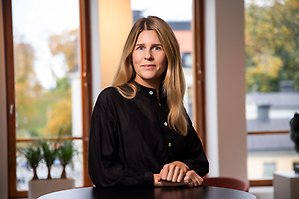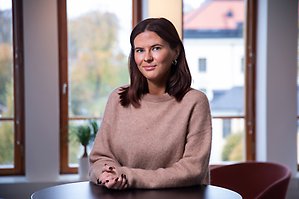The date of the call is preliminary and may be revised. The call description will continue to be revised and made more precis until the call opens for applications.
The re-use of resources needs to significantly increase, and climate emissions need to be reduced in existing built environments and in construction to achieve a sustainable, circular and resource-efficient built environment. Achieving structural change for transforming spatial planning requires knowledge and skills as well as new approaches and working methods. The call is part of the national research programme for sustainable spatial planning.
Spatial planning plays a key role in meeting challenges related to resource efficiency, circularity and climate impact. Globally, the use of materials has more than tripled in the last 50 years, and the expanding extraction of natural resources is leading to an increasingly negative impact on both climate and ecosystems over time. The construction and property sector uses a large share of the world’s natural resources and accounts for almost 22 per cent of Sweden’s greenhouse gas emissions.
The construction industry and the utilisation of existing buildings needs a large-scale transformation with profound changes at the structural level. Much of the business world is strongly committed to enabling a green transition, with numerous ongoing experiments of new technical solutions and pilot and demonstration projects. Yet few solutions have been scaled up to become part of established practices in spatial planning.
Achieving change at large-scale is as much about access to new technologies as it is about innovating on issues related to prevailing perceptions and ways of working. Spatial planning is a complex system with many different types of actors and practices. Technological innovations together with social innovations and more knowledge are required to challenge and re-evaluate tried and tested ways of working and to do things differently. There is a great need for knowledge and increased innovation capacity in the management of the built environment, encompassing the planning, and design of buildings, as well as procurement, implementation, management, repairs, refurbishments, demolition, and reuse. Questions about current practices, cultures, regulations, institutional structures and economic models are key elements in bringing about change in construction.
This call will fund projects that address clearly identified, preferably complex and system-related challenges, as well as knowledge needs essential for achieving a sustainable, circular, and resource-efficient built environment. Projects can consist of broad and interdisciplinary constellations that bring together multiple perspectives and methods to address organisational and knowledge gaps, but projects can also contribute with in-depth knowledge in a chosen area. You can apply for funding for 3-4 year projects with an annual maximum budget of SEK 3 million and a total maximum budget of SEK 12 million per project. This allows for both broad interdisciplinary constellations and in-depth exploration of a specific issue and enables the funding of doctoral projects.
In this call, the main applicant is to be a researcher with a PhD active at a Swedish higher education institution, research institute or public agency with a research mission, and funds can only be applied for by higher education institutions, research institutes and public agencies with a research mission. Projects must include activities for collaboration and dialogue with relevant stakeholders such as actors from the private sector, the public sector or civil society, as well as activities for communication and utilisation of results.
Projects awarded funding under this call are expected to participate in seminars and discussions with other projects funded under the call, as well as in conferences and networks within the framework of the national research programme for sustainable spatial planning.
Contact information





